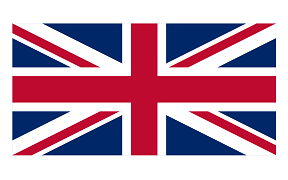Legislation
 TheMemorial University Act establishes Newfoundland and Labrador's only university. The statute outlines the university's authority to govern itself through the operations of a Board of Regents and Senate. These bodies have the authority to determine all matters relating to programs, qualifications of employees, and all other matters deemed to be in the interest of the institution. No explicit reference is made to accountability mechanisms or quality assurance of educational programming. Program quality responsibilities are implied through the powers and duties assigned to institutions' internal governing bodies.
TheMemorial University Act establishes Newfoundland and Labrador's only university. The statute outlines the university's authority to govern itself through the operations of a Board of Regents and Senate. These bodies have the authority to determine all matters relating to programs, qualifications of employees, and all other matters deemed to be in the interest of the institution. No explicit reference is made to accountability mechanisms or quality assurance of educational programming. Program quality responsibilities are implied through the powers and duties assigned to institutions' internal governing bodies.
The Act provides the university with the authority to establish affiliations with colleges or institutions in specifically identified program areas. Criteria for establishing affiliations are set out.
The Act also establishes the Marine Institute as part of Memorial University.
The Marine Institute was formerly known as the Newfoundland and Labrador Institute of Fisheries and Marine Technology and became part of Memorial University in 1992 and is recognized as such in theMemorial University Act.
Other Public Postsecondary Institutions
The Eastern Regional Health Authority's Centre for Nursing Studies and the Western Regional Health Authority's Western Regional School of Nursing, in collaboration with Memorial University's School of Nursing, deliver a Bachelor of Nursing (Collaborative) degree. The degree follows Memorial's curriculum and graduates receive a Memorial University degree, but each site is administered separately. Grenfell Campus, Memorial University, located in Corner Brook, provides some support services to the Western Regional School of Nursing. All nursing graduates in Newfoundland and Labrador must have degrees in nursing. The Centre for Nursing Studies and the Western Regional School of Nursing are regulated by the Association of Registered Nurses of Newfoundland and Labrador, the regulatory body for nursing in the Province governed by the Registered Nurses Act, 2008 and Regulations.
External and Internal Review
 Approval of new university programs and all matters of an academic character are contained within the University, and specifically within the Senate.
Approval of new university programs and all matters of an academic character are contained within the University, and specifically within the Senate.
At the graduate level, all new proposed graduate programs, having first been examined within the originating department are subsequently and progressively reviewed by the Committee on Graduate Studies, the Faculty Council, and the Graduate Council, with final approval given by the Senate.
At the undergraduate level, all new proposed undergraduate programs, having first been examined within the originating department are subsequently and progressively reviewed by the Undergraduate Studies Committee of Faculty, the Faculty Council, and the Senate Committee on Undergraduate Studies, with final approval given by the Senate.
The quality of existing university programs is addressed though an internal Academic Unit Planningprocess that employs self-study, assessment and external reviewers. This process typically occurs at least once every 10 years or sooner if required (e.g., by the regulatory bodies responsible for professional occupations).
Memorial's Board of Regents must report annually to the Minister of Advanced Education, Skills and Labour in accordance with the Transparency and Accountability Act. The Minister tables the Board's report in the Legislature.
Professional Accreditation
Many of Canada's regulated professions have associations that conduct accreditation reviews of university programs pertaining to their professions. In these instances, accreditation teams from the professions review reports provided by the universities and may conduct on-site visits in accordance with the policies and procedures established by the professions.
Other Organizations Related to Quality Assurance in Universities
Memorial University is a member of the Universities Canada. Although the association does not perform formal quality assurance functions, it does maintain membership criteria that address the primary mission of institutions; the range of program offerings; the breadth and depth of programs; the nature of members' relationship with parent institutions; the size of enrolment, institutional focus on scholarship, academic inquiry, and research; and compliance with the principles of academic freedom and responsibility. Institutions applying for membership must host an Universities Canada Visiting Committee that reports to the Universities Canada Board of Directors on a variety of items and recommends a decision on whether the applying institution is providing education of university standard.
The Association of Accrediting Agencies of Canada(AAAC) is a national organization composed of professional associations involved in promoting good practices by its members in accreditation of educational programs.
 English
English Français
Français 日本語
日本語 中文
中文 한국어
한국어 Русский
Русский



 The postsecondary education system in Manitoba is described in WSE's
The postsecondary education system in Manitoba is described in WSE's  The
The Approval of new university programs and all matters of an academic character are contained within the University, and specifically within the Senate.
Approval of new university programs and all matters of an academic character are contained within the University, and specifically within the Senate.
 The
The Many of Canada's regulated professions have associations that conduct accreditation reviews of college programs pertaining to their professions. In these instances, accreditation teams from the professions review reports provided by the colleges and may conduct on-site visits in accordance with the policies and procedures established by the professions.
Many of Canada's regulated professions have associations that conduct accreditation reviews of college programs pertaining to their professions. In these instances, accreditation teams from the professions review reports provided by the colleges and may conduct on-site visits in accordance with the policies and procedures established by the professions.
 The
The The
The







